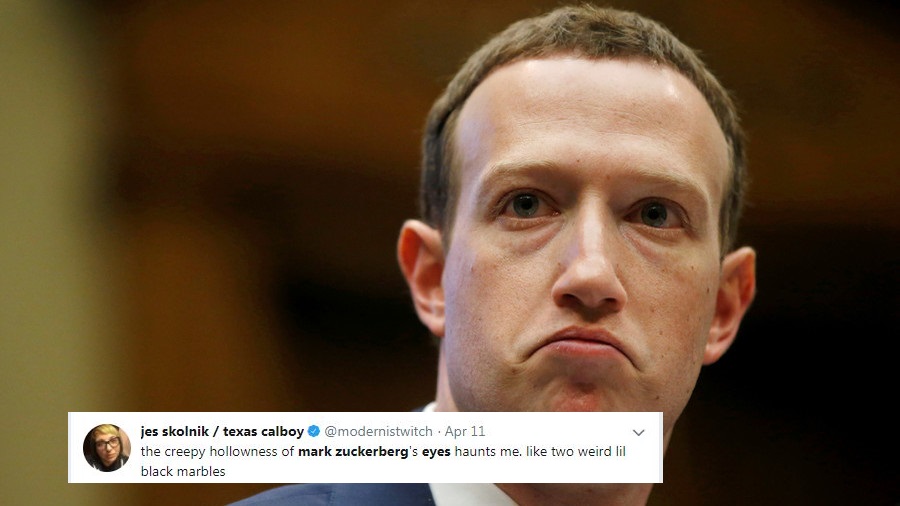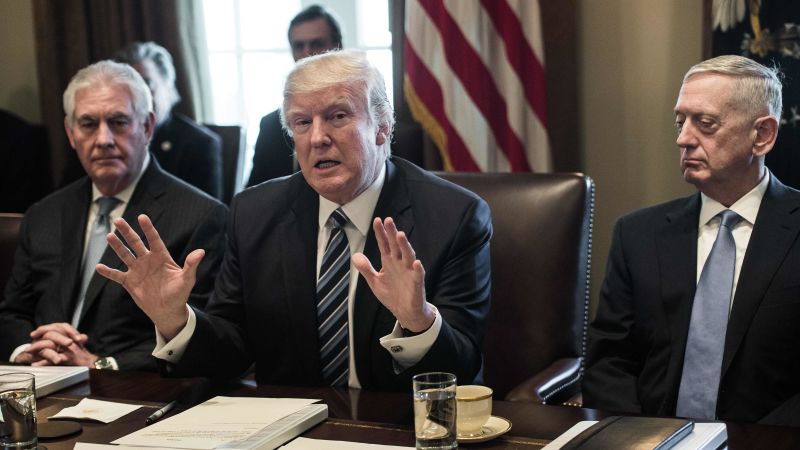Zuckerberg And Trump: A New Era For Facebook And Politics

Table of Contents
The 2016 Presidential Election and the Cambridge Analytica Scandal
The 2016 US presidential election exposed critical vulnerabilities within Facebook's platform, vulnerabilities exploited by Donald Trump's campaign and the now-infamous Cambridge Analytica. This period marked a turning point in the understanding of social media's influence on political processes.
Data Privacy Concerns
- Data harvesting: Cambridge Analytica harvested the personal data of millions of Facebook users without their consent.
- Misuse of personal information: This data was then used to create highly targeted political advertising, influencing voter behavior.
- Erosion of user trust: The scandal severely damaged public trust in Facebook and raised significant concerns about data privacy.
- Regulatory scrutiny: The scandal led to increased regulatory scrutiny globally, including the implementation and enforcement of GDPR (General Data Protection Regulation) in Europe and CCPA (California Consumer Privacy Act) in the US.
The Cambridge Analytica scandal revealed the chilling potential for misuse of personal data obtained through seemingly innocuous social media interactions. The ethical and legal implications for Facebook were profound, sparking widespread debate about the responsibilities of tech giants in protecting user data.
Foreign Interference and Political Advertising
- Russian interference: Facebook became a key battleground for Russian interference in the 2016 election, with the use of sophisticated bot networks and targeted advertising campaigns designed to spread disinformation and sow discord.
- Targeted advertising: Sophisticated micro-targeting techniques allowed campaigns to tailor messages to specific demographics, exacerbating existing societal divisions.
- Manipulation of algorithms: The algorithms that govern Facebook's newsfeed were exploited to amplify divisive content and limit the reach of opposing viewpoints.
- Impact on election outcomes: The extent to which this interference influenced the election outcome remains a subject of ongoing debate and investigation.
Facebook's role in disseminating misinformation and facilitating foreign interference during the 2016 election raised serious concerns about the integrity of democratic processes. The platform's algorithms, designed to maximize engagement, inadvertently amplified harmful content and contributed to a climate of political distrust.
Facebook's Policy Changes and Zuckerberg's Testimony
Following the 2016 election and the Cambridge Analytica scandal, Facebook implemented several policy changes and Zuckerberg faced intense public scrutiny. However, the challenges remain substantial.
Content Moderation Challenges
- Balancing free speech with the need to combat misinformation and hate speech: Facebook continuously grapples with this complex balancing act, facing criticism from both sides of the political spectrum.
- Algorithmic bias: Facebook's algorithms have been shown to exhibit biases, potentially amplifying certain viewpoints while suppressing others.
- Challenges of global content moderation: Moderating content globally, across multiple languages and cultural contexts, presents significant logistical and ethical hurdles.
Facebook's efforts to moderate content effectively, particularly political content, have been met with mixed results. The sheer volume of content and the constantly evolving nature of online manipulation necessitate ongoing adaptation and refinement of their strategies.
Zuckerberg's Congressional Testimony and Public Image
- Impact on Facebook's reputation: Zuckerberg's appearances before Congress significantly impacted Facebook's public image, exposing the company to criticism for its handling of data privacy and its role in the spread of misinformation.
- Investor confidence: The controversies surrounding Facebook also affected investor confidence, leading to fluctuations in the company's stock price.
- Calls for greater regulation: Zuckerberg's testimony fueled calls for greater regulation of social media platforms, a debate that continues to this day.
Zuckerberg's congressional testimonies were pivotal moments in shaping the public perception of Facebook's responsibilities and the need for stricter regulations in the tech industry. His appearances underscored the significant consequences of the "Zuckerberg and Trump" dynamic.
The Long-Term Impact on Political Discourse
The Zuckerberg-Trump relationship has had profound and lasting effects on political communication and the role of social media.
The Spread of Misinformation
- The amplification of false narratives: Social media platforms, including Facebook, have become powerful vectors for the spread of misinformation, hindering informed public debate.
- Polarization: The targeted dissemination of false narratives contributes to increased political polarization and societal division.
- Impact on public opinion: The spread of misinformation can significantly impact public opinion and shape electoral outcomes.
- Erosion of trust in institutions: The constant bombardment of false information erodes public trust in traditional media outlets and governmental institutions.
The ongoing challenge of combating misinformation on social media platforms requires a multi-faceted approach, involving collaboration between tech companies, governments, and media literacy initiatives.
Increased Political Polarization
- Echo chambers: Facebook's algorithms contribute to the creation of "echo chambers," reinforcing pre-existing beliefs and limiting exposure to diverse perspectives.
- Filter bubbles: Personalized newsfeeds create "filter bubbles," restricting exposure to information that challenges users' existing worldviews.
- The creation of online communities based on extreme views: Social media platforms have facilitated the formation of online communities based on extreme and often divisive ideologies.
- Impact on democratic processes: This increased polarization undermines the foundations of healthy democratic processes, hindering constructive dialogue and compromise.
Facebook's algorithms and newsfeed design have inadvertently contributed to the amplification of political polarization. Addressing this challenge requires a deeper understanding of algorithmic bias and the development of strategies to promote more inclusive and balanced information ecosystems.
Conclusion
The intertwined history of Mark Zuckerberg and Donald Trump has irrevocably changed the relationship between social media and politics. The 2016 election, the Cambridge Analytica scandal, and subsequent policy changes highlight the significant impact of the "Zuckerberg and Trump" dynamic on Facebook's policies, political discourse, and the future of social media. Understanding this complex relationship is crucial to navigating the challenges of misinformation, political polarization, and the evolving role of social media in shaping public opinion. To further explore the Trump-Zuckerberg dynamic and its implications for the future, we encourage you to engage in further research, participate in informed discussions, and remain actively involved in shaping the conversation about Facebook's political influence under Zuckerberg and Trump.

Featured Posts
-
 Toxic Chemicals From Ohio Train Derailment Months Long Building Contamination
Apr 24, 2025
Toxic Chemicals From Ohio Train Derailment Months Long Building Contamination
Apr 24, 2025 -
 Trumps Budget Cuts Increase Tornado Season Risks Experts Warn
Apr 24, 2025
Trumps Budget Cuts Increase Tornado Season Risks Experts Warn
Apr 24, 2025 -
 John Travoltas Emotional Birthday Post For His Late Son Jett
Apr 24, 2025
John Travoltas Emotional Birthday Post For His Late Son Jett
Apr 24, 2025 -
 Exploring The Lives Of Chalet Girls Beyond The Glittering Image
Apr 24, 2025
Exploring The Lives Of Chalet Girls Beyond The Glittering Image
Apr 24, 2025 -
 Kci Johna Travolte Ella Bleu Odrasla Je U Pravu Ljepoticu
Apr 24, 2025
Kci Johna Travolte Ella Bleu Odrasla Je U Pravu Ljepoticu
Apr 24, 2025
